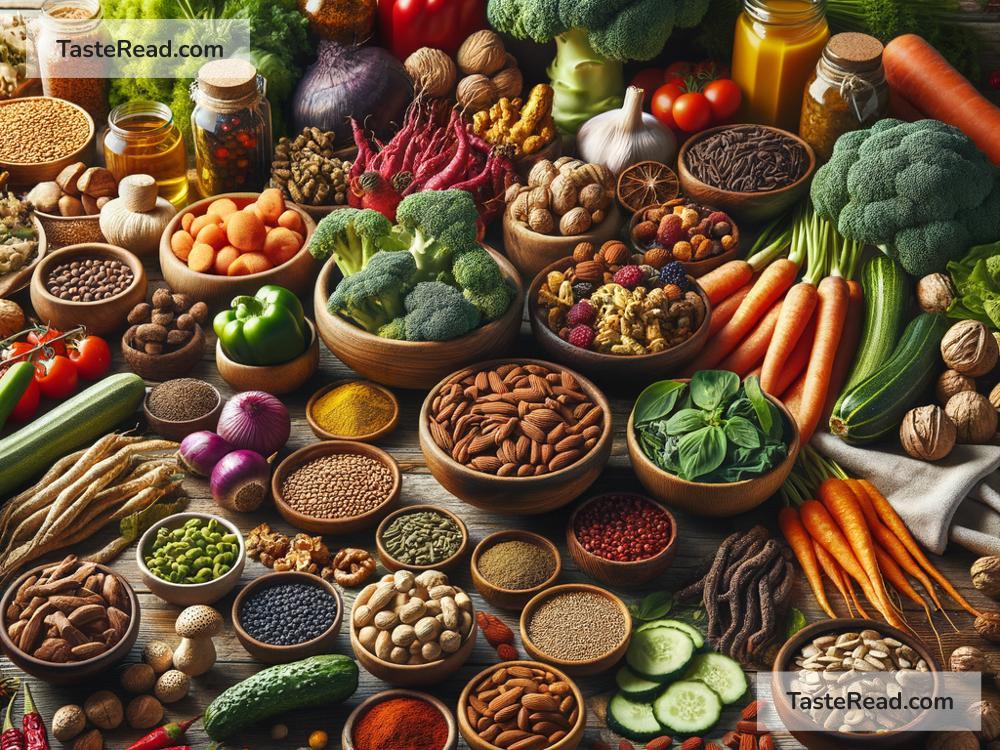Adaptability Starts on Your Plate: Foods That Help You Adjust to Change
Life is full of ups and downs, and the ability to adapt to changes is an important skill. Whether you’re facing new challenges at work, adjusting to life after a big move, or simply trying to stay calm during uncertain times, adaptability can help you remain flexible and resilient. But did you know that the foods you eat can actually affect how adaptable you are?
Your brain and body need the right kind of fuel to respond to stress, stay focused, and manage emotions. Certain foods can boost your mood, sharpen your thinking, and improve your energy levels, all of which are essential for adaptability. Let’s dive into simple, everyday foods that can support your ability to handle life’s changes.
1. Omega-3-Rich Fish: Brain Food for Flexibility
Omega-3 fatty acids are often called “brain food,” and for good reason! These healthy fats help your brain work better by supporting memory, focus, and emotional balance. Eating omega-3-rich fish like salmon, sardines, and mackerel can help you stay calm during stressful times and make better decisions when adapting to new situations.
If you don’t eat fish, you can get omega-3s from flaxseeds, chia seeds, walnuts, and algae-based supplements.
2. Leafy Greens: Calm Your Mind
Green vegetables like spinach, kale, and Swiss chard are rich in magnesium. This mineral helps your body stay calm by reducing feelings of stress and anxiety. When you’re facing changes, whether big or small, these greens can help you stay centered and make thoughtful choices instead of acting on impulse.
Add leafy greens to smoothies, salads, soups, or stir-fries for a quick mood boost.
3. Whole Grains: Energy to Keep Going
Whole grains like brown rice, quinoa, oats, and whole wheat bread are packed with complex carbohydrates that provide steady energy to your brain and body. Unlike sugary snacks that give you a short-term burst of energy followed by a crash, whole grains help you maintain focus and stamina throughout the day.
Feeling tired or overwhelmed can make adaptability harder, but whole grains can keep your brain energized when you’re facing challenges.
4. Fermented Foods: Support Your Gut, Support Your Mood
Fermented foods like yogurt, kefir, kimchi, sauerkraut, and miso are amazing for your gut health. You might be asking, “What does my gut have to do with adaptation?” Your gut is connected to your brain through a network called the “gut-brain axis.” A healthy gut can lead to better mood regulation and lower stress levels.
By eating fermented foods, you promote good bacteria in your gut, which helps you stay positive and handle emotional ups and downs more easily.
5. Nuts and Seeds: Tiny Powerhouses
Nuts like almonds, walnuts, and cashews, as well as seeds like sunflower and pumpkin seeds, are filled with healthy fats, protein, and vitamins. They contain nutrients like vitamin E and zinc, which help the brain function at its best. Snacking on nuts and seeds can also boost your mood, keep you feeling full, and give you the energy needed to adapt to daily challenges.
Keep a small bag of nuts or seeds in your purse or car for a quick, healthy snack on the go.
6. Berries: Nature’s Stress-Busters
Berries like blueberries, strawberries, and raspberries are packed with antioxidants that fight inflammation and stress in your body. Stress can make it harder to adapt to new situations, but eating berries regularly may reduce the impact of stress on your brain and body.
Berries are delicious on their own, but you can also blend them into smoothies, sprinkle them on oatmeal, or add them to yogurt.
7. Dark Chocolate: A Sweet Way to Focus
Good news for chocolate lovers: Dark chocolate (with at least 70% cocoa) is not only tasty but also helpful for your brain. It contains compounds that improve blood flow to your brain and support better focus. Dark chocolate also triggers the release of feel-good chemicals called endorphins, which can lift your mood and help you stay calm during stressful moments.
Remember to enjoy dark chocolate in moderation—about one or two small squares a day is enough.
8. Herbal Teas: Sip Your Stress Away
Certain herbal teas, such as chamomile, peppermint, and green tea, are excellent for calming your nerves and improving focus. Green tea, in particular, contains a compound called L-theanine, which helps you stay relaxed and concentrate better. Sipping tea during stressful times can be a soothing ritual that gives you mental clarity and helps you adapt to change.
9. Avocados: Brain Boosting Goodness
Avocados are loaded with healthy fats and B vitamins that support your brain. These nutrients improve memory and decision-making, which are both crucial when you’re facing new experiences. Whether you mash avocado into guacamole or slice it for a salad, this creamy fruit is a great addition to your meals.
10. Water: The Ultimate Brain Fuel
Don’t underestimate the power of hydration! When your body is dehydrated, it’s harder to stay focused and positive. Drinking enough water throughout the day keeps your brain sharp and helps you cope with stress. Sometimes, adaptability is as simple as keeping a water bottle nearby.
Final Thoughts
Adaptability isn’t just about your mindset—it’s also deeply connected to your health. Choosing the right foods can prepare your body and mind to handle life’s changes with grace. By eating fish rich in omega-3s, leafy greens full of magnesium, fermented foods for gut health, and other nutrient-packed options, you give yourself the tools to stay strong, focused, and flexible during tough times.
So the next time life throws a curveball at you, remember: adaptability starts on your plate! The foods you choose could make all the difference. Start experimenting with these foods today and see how your body and mind respond to change over time.


